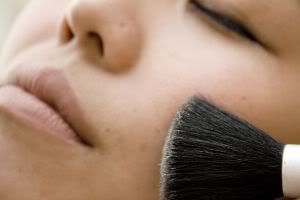
Regulators world wide are meeting in Tokyo this week to hash out some controversies in the cosmetics industry, including the regulation of product safety. This is especially timely in the wake of the recent uproar over unregulated nanomaterials and lead levels.
Nanoparticles are itsby bitsy particles 80 times thinner than human hair, used to improve the effects of cosmetic ingredients. The problem? Consumer groups are claiming that these tiny particles can permeate areas such as the heart, lungs and a pregnant woman's womb, possibly leading to toxic effects. Over in Europe, safety standards are set to take effect in 2012 for cosmetic companies that use nanotechnology -- a widely used practice by companies such as Boots, The Body Shop, Avon, Nivea, and Unilever to name a few.
Additionally, the U.S. Food and Drug Administration recently found lead in lipstick to be four times higher than the original study done by the Campaign for Safe Cosmetics in 2007. Lead is a proven neurotoxin known to cause problems like infertility and learning disabilities.
The FDA currently doesn't regulate lead levels in lipstick, yet the average amount is ten times higher than the legal amount in candy. Maybe we don't munch on our Maybelline, but we do ingest a little when we lick our lips, eat or drink. Since lead builds up in the body over time, applying lipstick several times every day might be dangerous.
According to Sean Palfrey, professor of pediatrics and public health at Boston University and the medical director of Boston's Lead Poisoning Prevention Program, there is no safe lead exposure for children and pregnant women.
"Pregnant women are particularly vulnerable to lead exposure because lead easily crosses the placenta and enters the fetal brain where it can interfere with normal development," Palfrey said.
The FDA refused to release which companies had the highest levels of lead, but the CSC found that L'Oreal, Maybelline and Cover Girl were consistent offenders.
The U.S. Centers for Disease Control and Prevention recommends staying away from all sources of lead exposure.
What do you think? Are you concerned with what you put on your body? Does this make you rethink your routine?
Worried about contaminants in your baby's beauty products? Read this.
Worried about contaminants in your baby's beauty products? Read this.







No comments:
Post a Comment